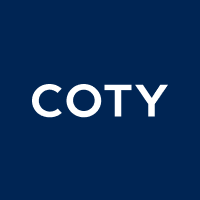
COTY
Coty ($COTY) CEO Buys $1.01M Amid 63% Stock Crash... Has Bottom Been Reached?
08/28/2025 22:36
Sentiment
Serial Buy
C-Level
Summary
- Coty CEO Sue Nabi purchased 260,000 shares ($1.018 million) on August 22, sending a strong confidence signal
- CFO and executives also participated in consecutive purchases amid 63% stock price decline over one year
- Despite tariff burden and beauty market recession headwinds, concentrated insider buying could serve as a reversal catalyst
POSITIVE
- Strong confidence signal through massive simultaneous buying by management including CEO
- Relative solidity of premium fragrance segment contributing 65% of total revenue
- Maintaining positive operating cash flow ($492 million) and free cash flow ($343 million)
- PEG ratio of 0.18 suggests undervaluation relative to growth
- Stock price already sufficiently declined, reflecting considerable negative factors
NEGATIVE
- Fiscal 2025 revenue declined 3.7% with $381 million net loss
- Tariff burden expected to exceed $100 million in 2026
- High leverage with 107% debt-to-equity ratio and short-term liquidity shortage with 0.77 current ratio
- Industry-wide difficulties due to U.S. consumer slowdown and delayed China market recovery
- Continued revenue decline and widening operating losses in Consumer Beauty segment
Expert
From a consumer defensive industry perspective, Coty's concentrated insider buying is a highly meaningful signal. Particularly, the CEO's $1 million scale purchase amid industry-wide challenges of tariff pressure and consumer slowdown shows strong confidence in structural recovery. Considering the solidity of the premium fragrance segment and positive cash flow, the current stock price level appears excessively declined.
Previous Closing Price
$3.05
-0.11(3.63%)
Average Insider Trading Data Over the Past Year
$3.9
Purchase Average Price
$0
Sale Average Price
$1.19M
Purchase Amount
$0
Sale Amount
Transaction related to News
Trading Date | Filing Date | Insider | Title | Type | Avg Price | Trans Value |
|---|---|---|---|---|---|---|
01/19/2026 | 01/19/2026 | Sale | $ |
Coty ($COTY) is sending a powerful reversal signal through massive insider buying amid severe stock price decline. From August 22-26, insiders including CEO Sue Nabi concentrated their purchases of company shares, conveying confidence to the market. Coty is a global cosmetics and fragrance company founded in 1904, owning premium fragrance brands like Calvin Klein, Gucci, Hugo Boss, and Burberry, as well as mass-market cosmetic brands like CoverGirl and Max Factor. With approximately 120 years of history in the beauty industry, the company currently has a market capitalization of $3.76 billion, classifying it as a mid-cap stock. Most notable is CEO Sue Nabi's move. She purchased 260,000 shares at an average price of $3.92 per share on August 22, investing a total of $1.018 million. This represents a strong signal of the CEO's confidence in the company's future value. Nabi, who joined Coty in 2020, has been leading brand portfolio strengthening and digital transformation, particularly achieving results in the premium fragrance segment. Other executives also made consecutive purchases during the same period. Officer Priya Srinivasan bought 30,000 shares ($115,000), and CFO Laurent Mercier purchased 15,500 shares ($61,000). The CFO made consecutive purchases over two days, showing strong commitment. Such simultaneous buying by the entire management team suggests that those with access to internal information view the current stock price level as attractive. This insider buying occurred amid extreme stock price decline. Coty's share price plummeted 63% from $10.2 in June 2024 to $3.69 in August 2025. The decline accelerated particularly from February 2025, recording $4.65 at the end of June before crashing to the $3 range in August. This reflects the structural challenges Coty faces. The major challenges the company confronts are clear. Fiscal 2025 results show revenue decreased 3.7% year-over-year to $5.89 billion, with a net loss of $381 million. Consumer spending slowdown in the U.S. market and tariff pressures are major burdens. The company announced that tariff-related burden is expected to exceed $100 million in fiscal 2026. Nevertheless, Coty's fundamental business shows resilient aspects. The premium fragrance segment demonstrates relative resilience, with the Prestige segment accounting for 65% of total revenue generating $3.8 billion. The company also maintains cash generation capability with operating cash flow of $492 million and free cash flow of $343 million. The overall beauty industry environment is also a factor to consider. Since 2025, major competitors like Estée Lauder and L'Oréal have also experienced poor performance due to tariff uncertainties and consumer recession. Delayed recovery in the Chinese market and changing consumption patterns in the U.S. are affecting the entire industry. However, Gen Z's increased interest in skincare and beauty market expansion due to aging population could serve as medium to long-term opportunity factors. Indicators investors should carefully monitor include: if tariff impacts appear less than expected in upcoming quarterly results, or if premium fragrance segment revenue growth accelerates, these should be viewed as positive signals. Conversely, the high leverage with debt-to-equity ratio of 107% and short-term liquidity shortage with current ratio of 0.77 remain risk factors. The most likely scenario in the current situation is gradual recovery. Considering insiders' confidence and the already sufficiently declined stock price, if tariff uncertainties are resolved and consumer environment improves, stock price rebound probability is high. Particularly, Coty's PEG ratio of 0.18 suggests undervaluation relative to growth. Risk scenarios include tariff burden being larger than expected or beauty market recession becoming prolonged. In this case, financial pressure could intensify due to high debt burden. However, the current stock price level appears to reflect these negative factors considerably. The concentrated buying by CEO and executives represents a powerful message about the company's future beyond simple financial investment. CEO Sue Nabi's $1 million scale purchase particularly shows confidence that current difficulties are temporary and structural improvement is possible. For investors, this could be a time to discover opportunities amid crisis.